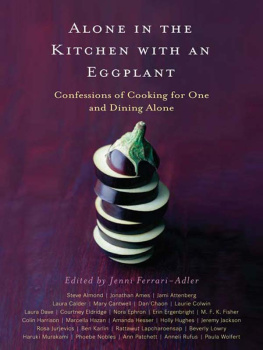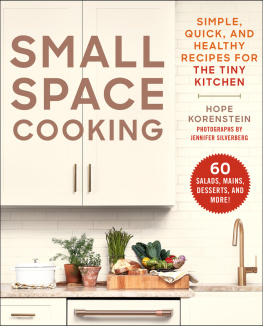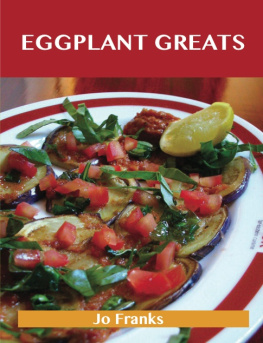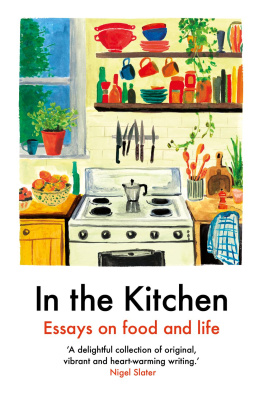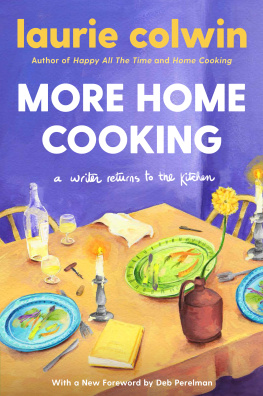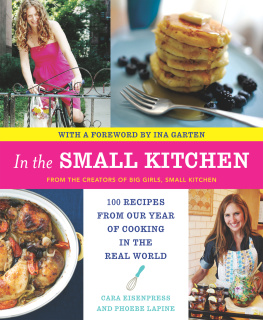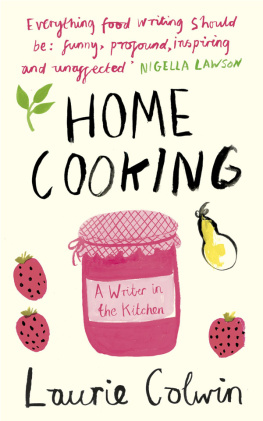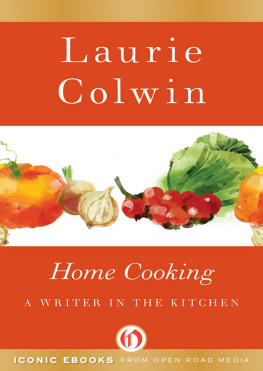1. For the purposes of this essay, all asparagus will be green. What is white asparagus? It is grown in secret caves, as mushrooms are. It is a long, spooky fungus. It is naked and phallic. At the end of winter, I want to see green. White vegetables do not make me want to live.
7. One.
8. Thats a made-up name for hashI really dont know if they name hash the same way they name pot. I mean, I wish I knew that. I imagine a person who knows that has really lived.
9. Now readily available in the supermarket in the Things That Will Kill You aisle.
10. In Italian the word pig can be used to spectacularly offensive ends.
11. A lesser god, like Bacchus or Hephaestus, but still a god.
12. Imagine super-Jewy inflection to maximize Annie Hall like juxtaposition.
1. Probably the best way to eat an orange is to pick it dead-ripe from the tree, bite into it once to start the peeling, and after peeling eat a section at a time.
Some children like to stick a hollow pencil of sugarcandy through a little hole into the heart of an orange and suck at it. I never did.
Under the high-glassed Galeria Vittorio Emanuele in Milan before the bombs fell, the headwaiters of the two fine restaurants would peel an orange at your table with breath-taking skill and speed, slice it thin enough to see through, and serve it to you doused to your own taste with powdered sugar and any of a hundred liquors.
In this country Ambrosia is a dessert as traditionally and irrefutably Southern as pecan pie. My mother used to tell me how fresh and good it tasted, and how pretty it was, when she went to school in Virginia, a refugee from Iowas dearth of proper fin de sicle finishing schools. I always thought of it as old-fashioned, as something probably unheard of by todays bourbons. I discovered only lately that an easy way to raise an unladylike babble of protest is to say as much in a group of Confederate Daughtersand here is the proof, straight from one of their mouths, that their local gods still sup on
Ambrosia
6 fine oranges
11/2 cups grated coconut, preferably fresh
11/2 cups sugar
Good sherry
Divide peeled oranges carefully into sections, or slice thin, and arrange in layers in a glass bowl, sprinkling each layer generously with sugar and coconut. When the bowl is full, pour a wine glass or so of sherry over the layers and chill well.
2. Crpes, approximately Suzette, are the amateur gourmets delight, and more elaborately sogged pancakes have been paddled about in more horrendous combinations of butter, fruit juices, and ill-assorted liqueurs in the name of gastronomy than it is well to think on.
A good solution to this urge to stand up at the end of a meal and flourish forks over a specially constructed chafing dish is to introduce local Amphytrions to some such simple elegance as the following, a recipe that was handed out free, fifteen years ago in France, by the company that made Grand Marnier:
Dissolve 3 lumps of sugar in 1 teaspoon of water. Add the zest of an orange, sweet butter the size of a walnut, and a liqueur glass of Grand Marnier. Heat quickly, pour over hot, rolled crpes, set aflame, and serve.
3. The following dish has almost the same simplicity as the preceding ones, but where they are excellent, this is, to my mind, purely horrible.
It is based on a packaged gelatin mixture which is almost a staple food in America. To be at its worst, which is easy, this should be pink, with imitation and also packaged whipped milk on top. To maintain this gastronomical level, it should be served in salad form, a small quivering slab upon a wilted lettuce leaf, with some such boiled dressing as the one made from the rule my maternal grandmother handed down to me, written in her elegantly spiderish script.
I can think of no pressure strong enough to force me to disclose, professionally, her horrid and austere receipt. Suffice it to say that it succeeds in producing, infallibly, a kind of sour, pale custard, blandly heightened by stingy pinches of mustard and salt, and made palatable to the most senile tongues by large amounts of sugar and flour and good water. Grandmother had little truck with foreign luxuries like olive oil, and while she thought nothing of having the cook make a twelve-egg cake every Saturday, she could not bring herself to use more than the required one egg in any such frippery as a salad dressing. The truth probably is that salads themselves were suspect in her culinary pattern, a grudging concession to the Modern Age.
*Okay, possibly there were no silver forks in ancient Rome, but Im sure theyd have used some kind of elaborate, pricey pronged thing.
2. I have since found that Emily Post says, The ungraceful appearance of a bent stalk of asparagus falling limply into someones mouth and the fact that moisture is also likely to drip from the end cause most fastidious people to eat itat least in partwith the fork. Her limp, drippingpossibly cannedasparagus makes me shiver.
1. Nevertheless, I dont want to overemphasize the degree of my poverty at the time, for I often find inappropriate those who conflate the temporary deprivations of student living with the long-term despair inflicted by intractable economic disadvantage. More often than notparticularly at institutions like Cornellthose who would claim the mantle of poverty tend to have trust funds and ample salaries awaiting them as soon as they leave. Poverty figures as a romantic rite of passage rather than a cruel fate doled out by a cruel world, and its always struck me as a mark of true privilege when one can dabble in the darkness of economic despaireating instant noodles in ones dorm room only to go back to ones suburban house during vacations to feast like a rarefied gourmand.
3. See Claude Levi-Strauss, The Raw and the Cooked.
1. Yiddish for chicken neck.
2. China, c. 534, preSui Dynasty, famed for setting up Eastern Wei Emperor hostile to Chinese culture; also famed for delicious chicken dish.
3. Grains of which would be discovered in an adjacent room five years later, when the house was sold.
4. Siena, late May, with my mom. Cut it with a Swiss Army knife; juice ran down my arm. I asked her what the hell those red things were wed been eating all those years.
5. Also that American cheese is not technically a cheese, but a cheese-food product.
6. To be fair, they probably remember me as that snobby prick who spent way too much time in the kitchen.
Alone in the Kitchen with an Eggplant
Alone IN THE Kitchen WITH AN Eggplant
CONFESSIONS OF COOKING FOR ONE AND DINING ALONE
EDITED BY
Jenni Ferrari-Adler
RIVERHEAD BOOKS
a member of Penguin Group (USA) Inc.
NEW YORK
2007

RIVERHEAD BOOKS
Published by the Penguin Group
Penguin Group (USA) Inc., 375 Hudson Street, New York, New York 10014, USA Penguin Group (Canada), 90 Eglinton Avenue East, Suite 700, Toronto, Ontario M4P 2Y3, Canada (a division of Pearson Penguin Canada Inc.) Penguin Books Ltd, 80 Strand, London WC2R 0RL, England Penguin Ireland, 25 St Stephens Green, Dublin 2, Ireland (a division of Penguin Books Ltd) Penguin Group (Australia), 250 Camberwell Road, Camberwell, Victoria 3124, Australia (a division of Pearson Australia Group Pty Ltd) Penguin Books India Pvt Ltd, 11 Community Centre, Panchsheel Park, New Delhi110 017, India Penguin Group (NZ), 67 Apollo Drive, Rosedale, North Shore 0745, Auckland, New Zealand (a division of Pearson New Zealand Ltd) Penguin Books (South Africa) (Pty) Ltd, 24 Sturdee Avenue, Rosebank, Johannesburg 2196, South Africa
Penguin Books Ltd, Registered Offices: 80 Strand,
London WC2R 0RL, England
Copyright 2007 by Jenni Ferrari-Adler
All rights reserved. No part of this book may be reproduced, scanned, or distributed in any printed or electronic form without permission. Please do not participate in or encourage piracy of copyrighted materials in violation of the authors rights.

